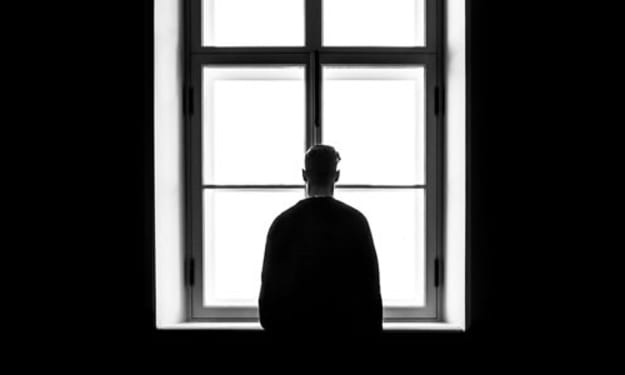“Victim Mentality"—If You Do Not Understand It, You Have Never Experienced It
For those who have, it is very real.

Depression is real. Paranoia is real. Pain ... is real. Psychological or physical, it doesn’t matter.
You will not find “victim mentality” in a DSM manual. It is neither a disease, nor an illness.
A condition? Maybe.
But not on the part of the victim.
Really, you know nothing of the sufferer.
Of course, we all know people who appear to complain for a living, and among them likely several who have adapted a "woe is me" attitude which veritably defines "tiresome" and "wearing."
But let's dig deeper.
Firstly, I am not a psychologist. My sole experiences in these matters are the following: real life observation, personal sensitivities, pre-requisite course work in Psychology for a Special Education B.A. Degree, ten years-plus of practical experience as a Special Education teacher for at-risk children and adults.
I consider the term “victim mentality” to be a pejorative, a throwaway comment most frequently used to describe an unwanted response to a particular action. These actions can be manipulative in nature, or simply watched from afar.
An example of the former would be a man or woman not accepting a sexual advance, then complaining to a given entity (a friend, the media) that the incident not only occurred, but traumatized them.
Why do we judge—how can we judge—someone else's trauma?
The question is a silly one. There is but one answer: "victim blaming."
Victim Blaming
Many of us have become in large part inured to those who appear unable to manage their more "shameful" states of being (quotes incorporated as there is nothing at all "shameful" about emotionally difficult confrontations). Some of us laugh at these individuals, as if we are somehow superior. Others of us dismiss them for being "weak," or ill-equipped to life's usual stressors, as if the rest of us are entitled to blame them for their "deficiencies" (in quotes for the same reason).
And we would be wrong, in all of the above instances.
Sensitivities differ among us all. We either pride ourselves on our durability, or toughness, or curse ourselves for the opposite. If a close family member found themselves in real trouble, would you be upset? If you were raped, would you be able to get on with your day to day the following morning?
If your child is ill, do you have a right to tell your friend or associate that your family is going through "tough times?"
I have a friend who had recently been called "free of cancer" after a horrific two-year battle. He posted a Facebook Live video between surgeries, and bemoaned the fact that many of his close friends abandoned him. Few calls, less visits.
His very sincere anger led to a mutual abandonment. "Fuck you, too" was the expressed message. Thing is, I felt horrible watching the video as I hadn't called him either. I was not abandoning him, but I assumed he was busy enough dealing with his cancer and didn't want to be bothered.
I called him and left a message. I didn't hear back.
A month or so later, I saw on Facebook that he was having a party at his house, in celebration of a health-related victory. I responded in the affirmative that I would show up. I attended with my wife, and told my friend why I hadn't called. He understood. We were cool.
But what a misguided assumption I had made! He needed friends around him. He was not complaining for the sake of complaining. He certainly had reason.
To those others who did leave him once he got sick, I'll reiterate my friend's message:
"Fuck you."
(Note: He is now cancer-free.)
Safe Spaces
Personal honesty will win the race here, so I'll admit to my own pet peeve on the subject. So-called "safe spaces" are a wholly legitimate place for the sufferer to find a modicum of peace when in either crisis or an easily-triggered-mode.
I personally admit to a lack of patience when one backs down too easily from confrontation, and for reason. Said lack of patience does not make me "right" in any way, but my thought on the matter is that we all have a right to express ourselves. All of us. No one should be excluded from their right to discuss their desires, their pain, their anger or their fears. In particular, sufferers from depression, whether chemically or emotionally-based, when withholding such human proclivities tend to later release their emotions in ways that may not be constructive or even healthy.
I'll go one step further, though: In truth, I believe anyone who "holds it in" to a certain degree will eventually find their restraint unbearable.
"Safe spaces" to me are not solely for those who need to escape the rigors of the world, but for those who simply need to communicate and do not always have the avenue to do so.
Many of us, we know who we are, elect to avoid "negative energy." And yes, "whiners" and "chronic complainers" will always exist. Yes, they can be tiresome based on your tolerance. No one is empathic, but some of us are more sensitive than others.
Those more sensitive have different definitions of "whiners" and "complainers."
I'll be the first to admit that I ride our current President for being a "perpetual victim." My choice of words are part and parcel of my own angry response to the country's current status quo. Do I believe I am correct in excoriating Donald Trump? Or, do I believe I'm preaching one thing and doing another?
I'll own my hypocrisy. I'm human too.
It remains important to remind ourselves, however, that we are not always right. We do not know better than those who are suffering.
And, yes, that includes the leader of the free world, who I believe is guided by a plethora of issues.
But that's my gab.
We need to rethink our thoughts on "victim mentality," and I like anyone have a good deal to learn on the matter.
About the Creator
Joel Eisenberg
Joel is a writer-producer, and partner in TV development group Council Tree Productions. He has developed projects for Ovation TV, TNT, Decades TV and FOX Studios, among others.






Comments
There are no comments for this story
Be the first to respond and start the conversation.